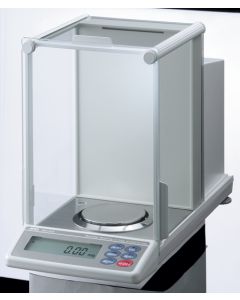Keeping your laboratory running smoothly requires the right tools. Among the most essential is the analytical balance, an instrument critical for accurate measurements in various scientific processes.
Understanding Analytical Balances in Lab Settings
Analytical balances are crucial in any laboratory. They offer the accuracy and precision needed for tasks ranging from weighing chemicals for reactions to measuring samples for analysis. These balances ensure that measurements are reliable, which is vital for reproducibility and validity in scientific experiments.
Accuracy and Precision Requirements
When selecting an analytical balance, understanding the accuracy and precision required for your experiments is essential. Accuracy refers to how close the measured value is to the true value, while precision indicates the consistency of repeated measurements. An imbalance in these factors can lead to erroneous results, compromising the integrity of your lab work.
Sample Size and Weight Range
Different labs handle varied sample sizes and weight ranges, requiring balances that can meet these needs. Whether you're dealing with microgram samples or larger quantities, choosing a balance that aligns with your sample size is crucial. Investing in a balance that can accurately weigh the smallest of samples ensures no detail goes unnoticed.
Environmental Factors
Environmental conditions like temperature, humidity, and air currents can affect the performance of analytical balances. Selecting a balance designed to function optimally in your lab's environment minimizes potential errors. Additionally, ensuring your lab setup includes draft shields or other protective features can help maintain measurement accuracy.
Budget Considerations
While it's tempting to go for the most advanced model, budget constraints often play a significant role in decision-making. Balancing cost with functionality ensures you get the best value without compromising on essential features. Carefully evaluating the long-term benefits and potential costs of maintenance can guide your investment.
Types of Analytical Balances
Understanding the different types of analytical balances helps ensure you select the one best suited to your lab's needs.
Micro and Semi-Micro Balances
Micro and semi-micro balances offer high precision and are ideal for measuring extremely small samples. Their sensitivity makes them perfect for applications requiring meticulous accuracy, such as pharmaceutical research and chemical analysis.
Precision Balances
Precision balances are versatile and suitable for many laboratory applications. They provide an excellent balance between accuracy and capacity, making them ideal for general laboratory use, including sample preparation and quality control.
Ultra-Micro Balances
Ultra-micro balances are the pinnacle of precision, capable of measuring even the tiniest samples with incredible accuracy. They are used in specialized fields where the utmost precision is paramount, such as nano-materials research and high-end chemical analysis.
Tips for Maintenance and Calibration
Regular Calibration
Regular calibration of your analytical balance maintains its accuracy and reliability. Using calibrated weights and following the manufacturer's guidelines ensures your measurements remain precise.
Environmental Control
Maintaining a stable environment around your balance minimizes measurement errors. Using draft shields and controlling temperature and humidity levels can significantly enhance performance.
Routine Cleaning
Keeping your balance clean prevents contamination and ensures longevity. Regularly wiping down surfaces and removing any residues can prevent drift and maintain accuracy.
Conclusion
Choosing the right analytical balance involves considering various factors, from accuracy and sample size to environmental conditions and budget. Understanding the different
types of balances and their applications helps you make an informed decision that meets your laboratory's specific needs. Proper maintenance and calibration further ensure that your balance operates optimally, providing reliable measurements for your scientific endeavours.





Comments